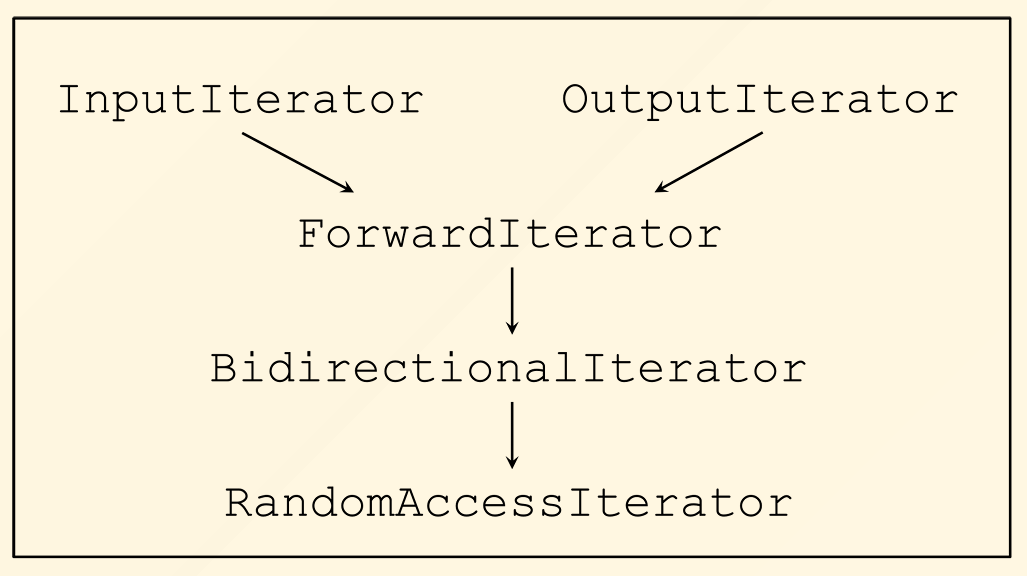Iterators¶
约 138 个字 22 行代码 预计阅读时间 1 分钟
Iterator, a generic pointer. (Pointer to element in containers)
Basic Element of an Iterator¶
-
begin()
Point at the first element in the container
vector<int> v = {1,2,3,4,5}; auto it = v.begin(); // it -> 1
-
end()
Point at the element after the last element.
\(element \in [begin(), end)\)
-
operator ++
Step the iterator to next element
vector<int> v = {1,2,3,4,5}; auto it = v.begin(); // it -> 1 it++; // it -> 2
-
**operator ***
Get the element pointed to.
vector<int> v = {1,2,3,4,5}; auto it = v.begin(); // it -> 1 *it == 1;
-
operator ->
Get the 'real' pointer to the element.
Iterator Traits¶
Defines info about the iterator
template <class Iterator>
struct iterator_traits {
typedef typename Iterator::value_type value_type;
}
Partial specialization for pointer types
template <class T>
struct iterator_traits<T*> {
typedef T value_type;
}
-
Standard traits
- iterator_category
-
value_type
type of elements in container
-
difference_type
type of
it1 - it2
-
pointer
type of pointer to elements on container
-
reference
type of reference to elements on container
Iterator Category¶
-
Call corresponding functions regarding iterator category
template<class Iterator, class Distance> inline void advance(Iterator &i, Distance n) { __advance(i, n, iterator_traits<Iterator>::iterator_category()); }Call functions with an instance of
iterator_category.__advancehave several overloaded versions, differed by the last argument.Compilers will then choose appropriate function signature !
